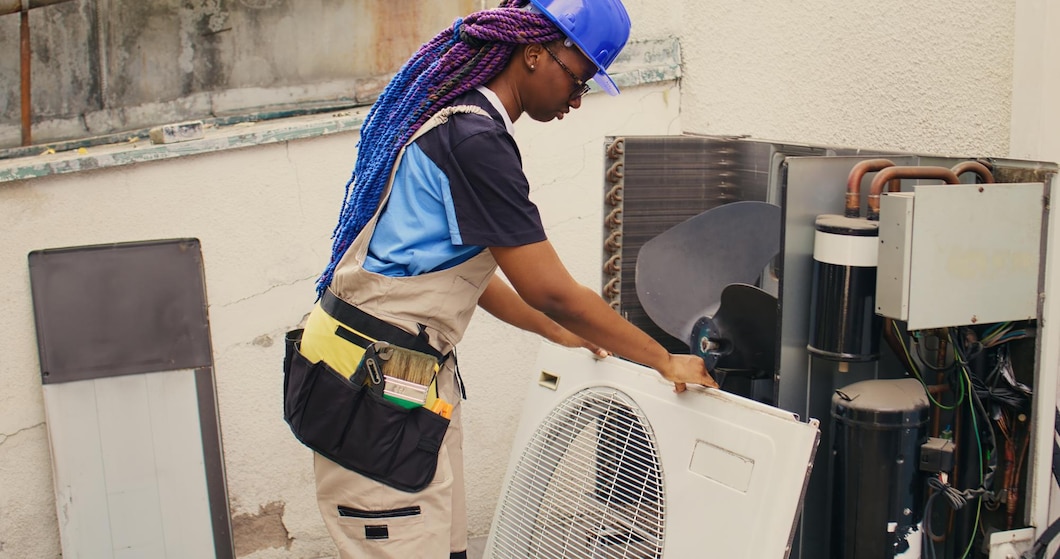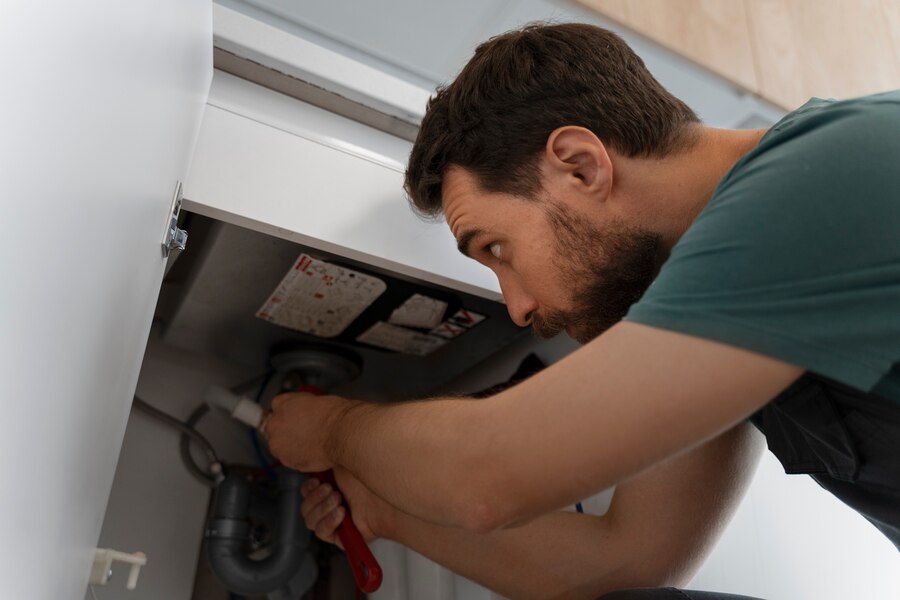
When faced with a malfunctioning furnace, homeowners often find themselves at a crossroads: should they opt for furnace repair or invest in a replacement? This decision is influenced by various factors, including the extent of the damage, the age of the furnace, and budget considerations. In this comprehensive guide, we’ll explore the key factors influencing furnace repair costs vs replacement costs, the cost-effectiveness of each option, long-term savings considerations, and the importance of consulting HVAC professionals for accurate estimates.
Heating and Air Conditioning Services
Understanding Furnace Repair Costs
Furnace repair costs can vary widely depending on the nature and extent of the issue. Minor repairs, such as replacing a faulty thermostat or cleaning the furnace filters, may cost a few hundred dollars. However, more significant repairs, such as fixing a malfunctioning blower motor or replacing a cracked heat exchanger, can range from several hundred to several thousand dollars.
Factors influencing furnace repair costs include:
- Extent of Damage: The severity of the problem will directly impact repair costs. Minor issues may only require inexpensive replacement parts and minimal labor, while major repairs may necessitate more extensive work and higher costs.
- Type of Furnace: The type and brand of furnace can also influence repair costs. High-efficiency furnaces with advanced features may have more expensive components that drive up repair expenses.
- Age of the Furnace: Older furnaces may require more frequent repairs due to wear and tear, obsolete parts, and decreased efficiency. Repairing an aging furnace may be a temporary solution, as additional issues may arise in the future.
Exploring Furnace Replacement Costs
Furnace replacement costs involve not only purchasing a new unit but also installation expenses. The cost of a new furnace can vary depending on factors such as the furnace’s size, efficiency rating, and features. Additionally, installation costs will vary based on labor rates, complexity of the installation, and any necessary modifications to the existing HVAC system.
Factors influencing furnace replacement costs include:
- Type of Furnace: The cost of a new furnace will depend on factors such as its size, efficiency rating (measured by AFUE – Annual Fuel Utilization Efficiency), and features (such as variable-speed motors or programmable thermostats).
- Installation Expenses: Installation costs can vary depending on the complexity of the installation, accessibility of the existing HVAC system, and any necessary modifications or upgrades. It’s essential to factor in installation costs when considering furnace replacement.
- Energy Efficiency: While high-efficiency furnaces may have a higher upfront cost, they can lead to long-term savings through reduced energy bills. Energy-efficient furnaces typically have higher AFUE ratings, meaning they convert a higher percentage of fuel into heat.

Cost-Effectiveness of Furnace Repair vs Replacement
Determining whether furnace repair or replacement is more cost-effective requires careful consideration of several factors. While repairs may seem more affordable upfront, repeatedly fixing an older furnace can lead to cumulative costs that outweigh the initial investment of a replacement. On the other hand, investing in a new, energy-efficient furnace may result in long-term savings on energy bills and reduce the need for frequent repairs.
Consider the following when weighing the cost-effectiveness of furnace repair vs replacement:
- Age and Condition of the Furnace: If your furnace is nearing the end of its expected lifespan and experiencing frequent breakdowns, replacement may be the more cost-effective option in the long run.
- Energy Efficiency: Newer, high-efficiency furnaces can significantly reduce energy consumption and lower utility bills over time. Factor in potential energy savings when comparing the cost-effectiveness of repair vs replacement.
- Warranty Coverage: Consider whether your existing furnace is still under warranty. If major components are covered, repair costs may be minimal. However, if the warranty has expired, repair expenses can quickly add up.
Long-Term Savings Considerations
When evaluating the cost-effectiveness of furnace repair vs replacement, it’s essential to consider long-term savings and benefits. While a new furnace may involve a higher initial investment, it can offer several advantages, including:
- Energy Savings: High-efficiency furnaces can reduce energy consumption and lower utility bills over time, potentially offsetting the upfront cost of replacement.
- Improved Comfort: Newer furnaces often come with advanced features such as variable-speed motors and programmable thermostats, enhancing comfort and convenience for homeowners.
- Reduced Repair Costs: Investing in a new furnace eliminates the need for frequent repairs associated with aging units, saving homeowners money on maintenance and service calls.
Consultation with HVAC Professionals for Accurate Estimates
When faced with the decision between furnace repair and replacement, it’s crucial to consult with HVAC professionals for accurate estimates and expert guidance. Experienced technicians can assess the condition of your furnace, identify any underlying issues, and provide recommendations based on your specific needs and budget.
Tradewind HVAC, a trusted provider of heating and cooling services, offers professional consultation and reliable solutions for furnace repair and replacement. With their expertise and commitment to customer satisfaction, they can help you make an informed decision that ensures the comfort and efficiency of your home.
Comparing Furnace Repair Costs vs Replacement Cost at Tradewind HVA
Comparing furnace repair costs vs replacement costs involves weighing various factors, including the extent of damage, age of the furnace, energy efficiency, and long-term savings considerations. While repairs may offer a temporary solution, investing in a new, energy-efficient furnace can provide lasting benefits and savings. Consultation with HVAC professionals such as Tradewind HVAC is essential for accurate estimates and personalized recommendations tailored to your needs. Make an informed decision that prioritizes the comfort, efficiency, and affordability of your home’s heating system. Reach out to us today for expert advice and assistance in selecting the best heating solution for your needs.

FAQS
- When should I consider repairing my furnace instead of replacing it?
- Furnace repair may be a viable option if the issues are minor, the furnace is relatively new, and the repair costs are reasonable compared to the cost of replacement.
- What factors influence furnace repair costs?
- The extent of damage, type of furnace, and age of the furnace are key factors influencing repair costs. Major repairs or repairs on older units tend to be more expensive.
- How do I determine if it’s more cost-effective to repair or replace my furnace?
- Consider the age and condition of the furnace, potential energy savings with a new unit, and long-term repair costs. Compare the cost of repairs to the cost of a replacement, factoring in potential energy savings.
- What are the benefits of replacing a furnace instead of repairing it?
- Replacing a furnace with a new, energy-efficient unit can lead to long-term savings on energy bills, improved comfort, and reduced repair costs associated with older units.
- How can I ensure accurate estimates for furnace repair or replacement?
- Consult with HVAC professionals who can assess the condition of your furnace, identify repair needs, and provide accurate estimates for both repair and replacement options.
- What role does energy efficiency play in the decision to repair or replace a furnace?
- Energy-efficient furnaces can significantly reduce energy consumption and lower utility bills over time, making them a cost-effective option despite the higher upfront cost.
- Are there any financing options available for furnace replacement?
- Some HVAC companies offer financing options to help homeowners afford the upfront cost of a new furnace, making replacement more accessible and affordable.
- How do warranties factor into the decision between repair and replacement?
- If your furnace is still under warranty, repair costs may be minimal or covered entirely. However, if the warranty has expired, repair expenses may add up quickly, making replacement a more attractive option.
- What are the signs that indicate it’s time to replace rather than repair a furnace?
- Signs such as frequent breakdowns, increasing energy bills, uneven heating, and outdated technology may indicate that it’s more cost-effective to replace the furnace rather than continuing to repair it.
- How can I find a reputable HVAC professional to assess my furnace and provide recommendations?
- Look for HVAC companies with a proven track record of quality service, positive customer reviews, and professional certifications. Companies like Tradewind HVAC offer expert consultation and reliable solutions for furnace repair and replacement
